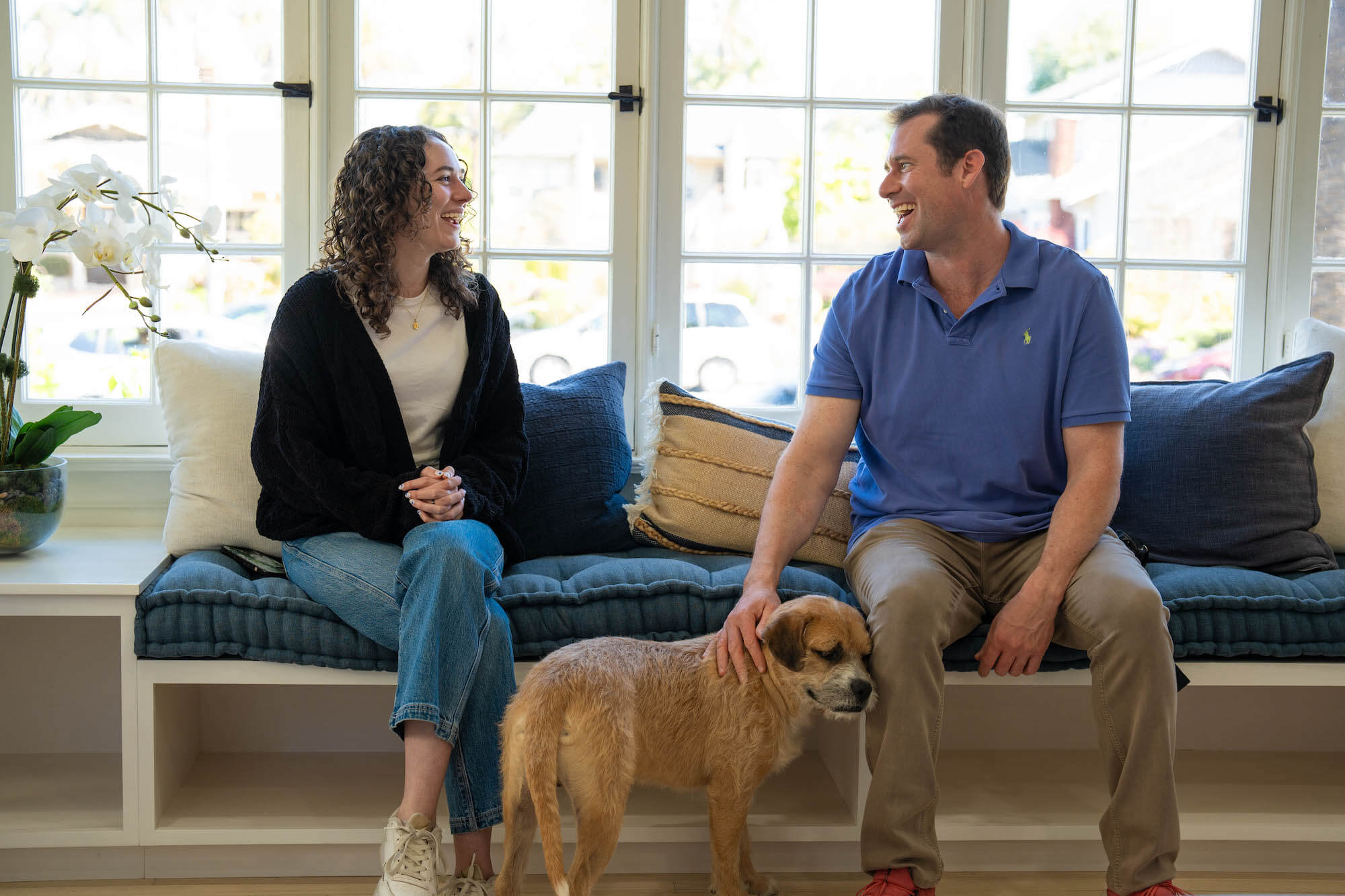Home » The Benefits of Couples Therapy
The Benefits of Couples Therapy

Couples Therapy
Couples therapy, also known as marriage and family therapy, is a brief and solution-focused intervention.
In couples therapy sessions, a therapist will help you to tackle a specific problem – the substance abuse of one partner, for instance – through attainable therapeutic goals.
Many people battling with addictions find that patterns of behavior within the family influence their substance abuse. Additionally, the consequences of substance abuse ripple outward and cause problems in the family dynamic.
In couples therapy – even if only one person is being interviewed – it is the set of family relationships that are treated rather than the individual.
Couples therapists, otherwise known as marriage and family therapist, can treat clinical conditions that include:
- Substance use disorders in one or both partners
- Depression
- Anxiety
- Psychological problems in one or both partners
- Marital problems
- Child-parent issues
Today’s guide highlights the benefits of couples therapy and its overall effectiveness, specifically with regard to addiction treatment.
What is Couples Therapy?
Couples therapy is a type of psychotherapy or talk therapy. This form of therapy is delivered by an experienced and licensed therapist – usually an LMFT (licensed marriage and family therapist.
In therapy sessions, both partners can:
- Gain precious insight into their relationship
- Strengthen communication
- Resolve conflict
- Improve satisfaction in the relationship
Therapists will draw on various therapeutic interventions in a process that will:
- Focus on a specific problem like substance abuse, internet addiction, or sexual difficulties.
- Active participation in therapy with the therapist treating the relationship as one instead of focusing on both partners in isolation.
- Change-oriented interventions applied early in couples therapy.
- Clearly established objectives.
Roughly half of the treatment delivered by couples therapists is one-to-one, with the other half consisting marital/couple and family therapy. The average duration of therapy is twelve sessions.
Couple therapy unfolds over the following phases:
- Getting started: In most cases, the first sessions of couples therapy starts with interview questions about the history of the relationship. The therapist may also explore the families of each partner, as well as their values and cultural backgrounds. If required, the first session can be used for crisis intervention – getting one partner into drug or alcohol rehab, for example. The therapist can then begin identifying issues upon which to focus during in couples therapy, enabling them to establish attainable treatment goals and to structure couples therapy sessions.
- Ongoing couples therapy: During regular scheduled couples therapy sessions, you should start to improve your understanding of the dynamics triggering problems in your relationship. The therapist will guide you and your partner, helping you to understand dysfunctional roles, interactions, and behaviors in the relationship more fully.
- Couples therapy outside of therapy sessions: Although it is important to gain insights into your relationship, the other vital component of couples therapy involves making behavioral changes. The therapist may assign you and your partner homework. These assignments will allow you to apply the skills you learn in couples therapy in everyday interactions with your partner.
History of Couples Therapy
The origins of couples therapy can be traced to the German eugenics movement in the 1920s. In the United States, the first marriage counseling institutes appeared in the 1930s, at least partially in responds to the extreme and medically-directed German form of marriage counseling.
In the 1950s, therapists starting to treat psychological problems by involving all members of the family unit in treatment.
Relationship counseling in any forms, then, is a fairly recent phenomenon. Until the late twentieth century, most relationship counseling was conducted by religious leaders, family members, or close friends. Today, couples therapy is delivered by various mental health professionals.
How Effective is Couples Therapy?
Data from AAMFT (American Association of Marriage and Family) indicate that 97% of the couples surveyed found that couples therapy provided the help they needed. 93% of the couples reported that therapy equipped them with more robust tools for managing conflict.
Marriage and family therapy can be as effective as evidence-based treatment for:
- Affective mood disorders
- Schizophrenia
- Adolescent substance abuse
- Alcoholism
- Substance abuse
- Conduct disorders in children
- Autism
- Anorexia and other eating disorders
- Chronic physical health conditions
- Marital conflict and distress
Behavioral couples therapy is the most researched approach. This form of therapy is proven effective for treating marital discord.
Today, behavioral couples therapy has evolved into integrative behavioral couples therapy. Data show that this form of psychotherapy is effective for 69% of couples. The traditional model, by contrast, was effective for between 50% and 60% of couples.
Research shows that couples therapy is neither more nor less effective than one-to-one therapy for the treatment of depression.
What Are the Benefits of Couples Therapy?
Couples therapy can help you to alter the course of your relationship, enabling both you and your partner to be more satisfied and fulfilled together.
These are some of the most commonly reported benefits of couples therapy:
- Therapy provides you and your partner with a safe space: If you or your partner is abusing substances, dealing with conflict can become volatile. To effectively manage conflict, you must be prepared to open up honestly and to be vulnerable. This process is more easily achieved in the safe space of a therapy sessions where boundaries will be created and enforced. You will also benefit from a skilled and neutral third party who can intervene when required.
- You can start to build or rebuild trust: Trust is key to a healthy relationship, and trust often breaks down when one or both partners are in active addiction. Emotionally-focused couples therapy can help both partners to build or rebuild trust.
- Strengthen your communication skills: A couples therapist will show you and your partner how to communicate more effectively and in healthier ways.
- Intensify your bond: If you feel closely bonded to your partner, you will feel empowered and able to tackle anything, including substance abuse or mental health issues.
- Speed up the process of improving your relationship dynamic: One of the leading advantages of a solution-oriented and time-limited intervention like couples therapy is the way it can shortcut the process of fixing problems in your relationship.
- Equip yourselves with superior coping skills: Your couples therapist will help you to develop coping mechanisms that can help you to deal with stressors in your relationship. These coping skills can also be applied to remaining abstinent from substance abuse, even in the face of cravings and temptation.
Therapy at Gratitude Lodge
At Gratitude Lodge, we offer appreciate that addiction is a family disease and we can include your loved ones in your treatment plan. We offer 30-day inpatient programs and intensive outpatient programs for the following conditions:
- Substance use disorder
- Alcohol use disorder
- Mental health disorders
- Dual diagnosis (addictions with co-occurring mental health conditions)
While there is no cure for addiction, it responds well to evidence-based treatment with the following therapies:
- MAT (medication-assisted treatment)
- Counseling (individual and group)
- Psychotherapy
- Family therapy
When you are ready to fight back against addiction, we can help you from detox to discharge and beyond, and we can also involve your loved ones in family therapy sessions. Call admissions today at 800-994-2184 for immediate assistance at our Southern California rehab centers.
Couples Therapy FAQs
Couples therapy, also known as marriage or relationship counseling, involves a trained therapist helping couples work through their issues and improve their relationship. During sessions, the therapist facilitates communication, helps identify and address problems, and provides strategies to promote understanding, trust, and better ways to handle conflicts, ultimately strengthening the couple’s bond.
The ideal therapist for couples is usually a licensed marriage and family therapist (LMFT) or a licensed couples therapist who possesses specialized training and expertise in dealing with relationship problems. These professionals are specifically equipped to assist couples in overcoming their challenges, enhancing communication, and fostering healthier and more fulfilling relationships.
When you stop taking painkillers, your body may experience withdrawal symptoms as it adjusts to the absence of the drug. These symptoms can include nausea, vomiting, diarrhea, muscle aches, insomnia, and mood changes, but they vary depending on the type of painkiller and the individual’s usage.











